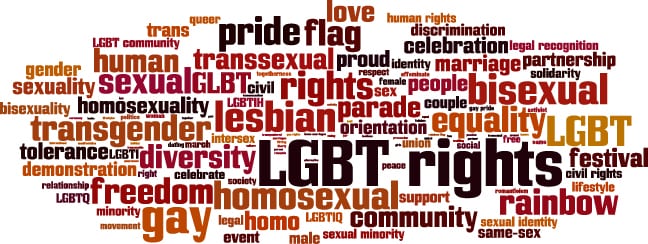LBGT Forum: Talking Open Internet

Even when the agenda calls for discussing the impact of the open Internet order on the LGBTQ community, you can bet there will be debate over the FCC’s February order to reclassify broadband under Title II.
Nicholas Degani, a legal adviser to Ajit Pai—one of the 2 GOP commissioners to vote against the order—suggested the FCC order won’t stand in its current form. Speaking at LGBT Tech’s third annual fall policy forum in DC, Degani declined to speculate on whether Congress would intervene, though he said congressional action addressing the reclassification would be “fantastic.” NCTA, US Telecom and others have challenged the order in federal court, with oral arguments slated for December. While the court could reverse course, Degani noted a new commission could also change the rules. “I’m pretty confident that in the next 5-10 years it will be fixed,” he said. “The biggest problem is going to be the number of people that miss out on broadband and the LGBTQ youth who won’t have those opportunities and will have to keep waiting.”
With Public Knowledge backing the FCC’s order, PK senior staff attorney John Bergmayer is squarely on the other side. “Either the FCC has the statutory authority to reclassify and to do various things or it doesn’t… I think it’s clear that the FCC does have that authority,” he said. Bergmayer argued that past attempts to pass open Internet rules were weak and Title II provides the strongest path. “I think the reason why Public Knowledge, and many others for years, advocated Title II…is because we thought that it was more legally sustainable,” he added.
The panel did drift back to LGBTQ issues. In discussing privacy concerns of LGBTQ community members as it relates to Title II, Bergmayer compared Customer Proprietary Network Information to meta data behind online communications, saying ISPs’ use personal information and monitor Internet usage. “It’s a controversial point, but knowing who you are talking to and for how long can be pretty revealing even if they don’t have the actual text of the communication,” he said. The argument continued that the FCC did not forbear privacy protection, and not much has been said for how providers should conduct themselves in relation to privacy. Doug Brake, telecommunications policy analyst at Information Technology and Innovation Foundation, chimed in that it is important for people to maintain a baseline of privacy. “We argue that there should be an opt-out option for use of personal identifying information,” he added.
The panel was in agreement that an open Internet can transcend geographic boundaries, reduce isolation, open up virtual communities and ensure expanded access to information for the LGBTQ community. As Degani pointed out, not all communities are on the same page with regards to accepting and including society members. The Internet “provides access to people who are open about who they are and are honest, and can make you feel like you are not alone,” he said.
Tuesday’s forum also included a panelist discussion on non-traditional hiring practices for diversity in the workplace. LGBTQ, women and minorities can feel isolated, and it becomes a community’s responsibility to ensure inclusion and role modeling at all levels. To create the leaders of tomorrow there needs to be inspiration today, an idea which pushes for greater access to Internet and education. “[Without diversity] technology itself will not be diverse,” said Dr. Marvin Carr of the White House’s Office of Science and Technology Policy.